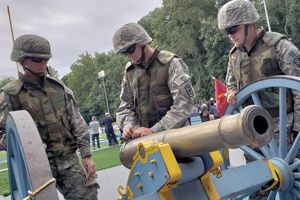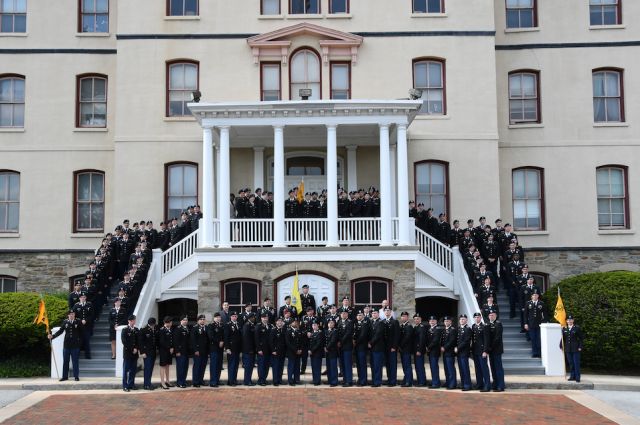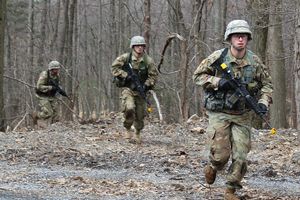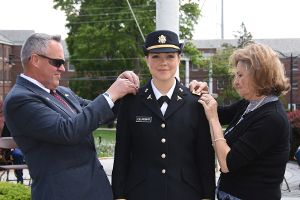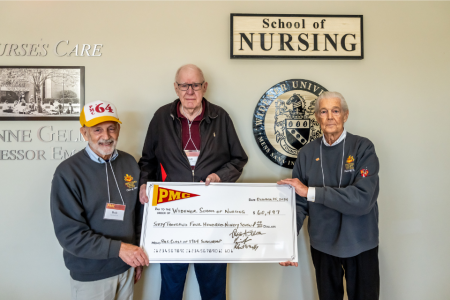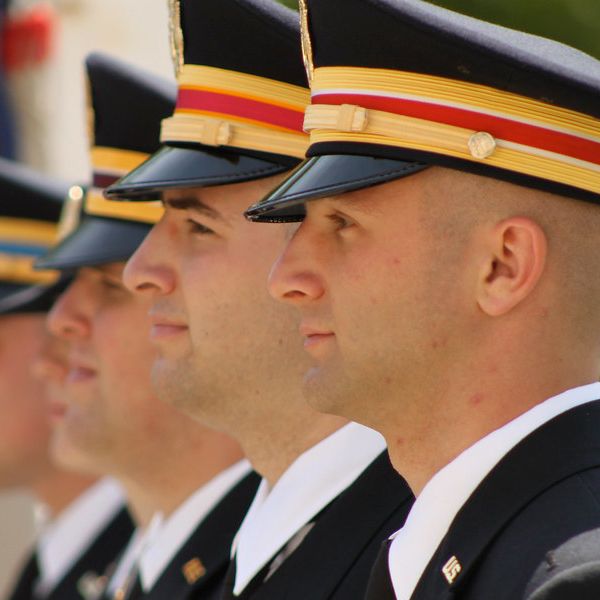Students in Widener's School of Nursing have unique opportunities to further their skills and potential careers through military experiences. In addition to participating in the ROTC program, nursing students that are contracted cadets have the option to participate in a unique training program as well as have additional opportunities post-graduation.
Nurse Summer Training Program (NSTP)
The Nurse Summer Training Program is a clinical elective conducted the summer between junior and senior year. There are several army hospitals in the continental United States, Hawaii, and Germany that are NSTP sites. During NSTP, students receive one-on-one experience under the direct supervision of a preceptor—an Army Nurse Corps officer. Students are introduced to the roles, responsibilities, and expectations of a new officer in the Army Nurse Corps while gaining progressive experience and leadership opportunities in a clinical setting.
Post-Graduation Opportunities
Students are commissioned as 2nd Lieutenants in the United States Army upon graduation. After passing the National Council Licensure Examination (NCLEX), students then attend the Basic Officer Leadership Course (BOLC) at Fort Sam Houston, Texas, prior to reporting to their first assignment. During the nine-week BOLC program, students study basic army knowledge and the functioning of an army unit. First assignments, which are determined by evaluating college performance, ROTC standing, and personal preferences, can be one of the nine major army medical centers in the continental United States, Hawaii, or Germany.
Once the Army Nurse Residency Program is completed and one year on active duty is served, participants are eligible to attend a clinical specialty course of their choice. Currently, the course choices are Perioperative Nursing, Critical Care Nursing, Obstetrical and Gynecological Nursing, Psychiatric/Mental Health Nursing, Emergency Nursing, and Public Health Nursing. As a member of the Army Nurse Corps, one also has the opportunity to apply for fully funded master’s degree programs, such as family nurse practitioner, pediatric nurse practitioner, nurse midwife, anesthesia nursing, MSN/clinical curse specialist, and the Baylor Health Care administration program.
Service Obligation for Nursing Students
- Scholarship recipients: The total service obligation is eight years, of which the first four are active duty. At the completion of the first four years, the remaining four years may be completed on active duty, in an Army Reserve (drilling) unit, or in the Individual Ready Reserve (non-drilling).
- Non-Scholarship recipients: The total service obligation is eight years. The active duty service commitment will be three years. At the completion of the first three years, one may elect to continue on active duty or enter the Army Reserves/IRR for the remaining five years.
